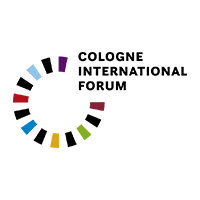Subproject 1: Changing Livelihood Strategies and Economic Resource Dynamics of Persons Internally Displaced by the Anglophone Conflict in Cameroon
Cameroon has a long history of conflict-induced displacement. Key triggers have included farmer-herder conflicts (Dafinger & Pelican 2006), the Boko Haram insurgency (Kah 2017), and, more recently, the Anglophone conflict (Bang & Balgah 2022; Pelican 2022). The Anglophone conflict sparked in 2016 when teachers and lawyers went on strike to contest the use of French in the schools and courts of the predominantly English-speaking (northwest and southwest) regions of Cameroon. The conflict is rooted in Cameroon’s bilingual nature, resulting from its colonial history with France and Britain. The Anglophone regions have felt marginalised by the country’s French-speaking leadership since the unification of British Cameroon and French Cameroun in 1961.
Although the government engaged in dialogue with the protest leaders in 2017, its response strategy was dominated by violent crackdowns on protesting which groomed secessionist tendencies that consolidated between 2017 and 2018 (GRID, 2019). The ensuing violence – which is ongoing – has caused forced rural-urban and rural-rural displacements. This has destabilised agricultural and livestock production which form the basis of livelihoods in the region. Recent price hikes for food and basic commodities resulting from COVID-19 and the Russia-Ukraine war have further worsened the already low purchasing power and fragile livelihood situation of Cameroonians, especially for internally displaced persons (FEWS NET 2022).
Currently, 712,800 registered Internally Displaced Persons (IDPs) have resettled in neighbouring cities and regions (OCHA 2022). While mostly welcomed by the host population, IDPs add stress to local economic, ecological, and social resources. The Cameroonian government has been reluctant to provide humanitarian aid to Anglophone IDPs and international food and humanitarian assistance remain ad-hoc, short-term, scarcely needs-driven, and largely neglectful of IDPs’ specific socio-economic and livelihood dynamics.
This project will study IDPs’ changing economic and livelihood strategies in the host region as well as their monetary and economic support of families and friends in the conflict zone. The project will contribute to the growing research on livelihood strategies and economic resilience in conflict settings and support humanitarian policy efforts in developing functional, long-term, resilient, and sustainable livelihood systems for IDPs.
